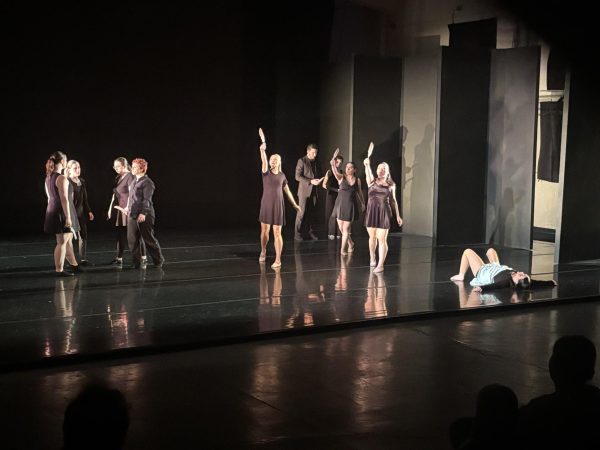New Chappelle special ‘Sticks and Stones’ breaks some bones
It’s been 16 years since “Chappelle’s Show” aired on Comedy Central, a TV series known for its societal commentary and political undertones. Since the show ended in 2006, Dave Chappelle, a popular American stand-up comedian, has collaborated with Netflix for four specials including “Deep in the Heart of Texas,” “The Age of Spin” and “Equanimity and The Bird Revelation” according to Vulture journalist Megh Wright.
While it has been just over a decade and a half since the end of his TV series, Chappelle continues to stick to his uncensored, controversial comedic style in his new special, titled “Sticks and Stones,” on Netflix that was released Aug. 26.
Chappelle likes to float in and out of the grey area of controversial topics that makes his humor simultaneously ingenious to his fans and infuriating to his critics. Despite backlash from critics, Chappelle still remains a standout in the realm of comedians. In October, Chappelle will be receiving the Mark Twain Prize for American Humor, according to Wright.
Chappelle, now very familiar with the spotlight, has seemingly become immune to the heat he faces from the media. He typically handles his controversial status by twisting irony into comedic ammunition that fuels his stand-up.
The first half of the special is void of clever metaphors and slick societal commentary. Rather, he is reliant upon crutch jokes and outdated humor. He cashes in a few cheap laughs amongst the scattered silence in the audience.
Chappelle has always been most heavily criticized for his comedic bits on the LGBTQ+ community and deservingly so. These jokes reflect weaker parts of his performance style and detract from stronger elements of his comedy.
Chappelle’s purpose has never been to attack groups or spread hate. At his best, he delivers jokes with strong social and political undertones similar to younger comedian Hasan Minhaj. Minhaj is known for his Netflix special “Homecoming King” and TV series “Patriot Act.” Both comedians are driven to challenge American expectations, values and systems that they consider toxic and detrimental to the countries democratic framework. Minhaj uses fast paced one-liners paired with witty, relevant cultural references to appeal to millenials and Generation Z viewers that grew up on quick, digestible meme and Twitter humor. Chappelle requires more dedicated viewers who are patient enough to ignore outdated rants and persevere through scattered, lazy humor. Minaj has the finesse to appeal to a younger, more culturally attuned crowd. Chappelle is more likely to appeal to audience members that are reminiscent of his role in Chappelle’s Show and brief Saturday Night Live appearances where his comedy felt more up to date. These viewers might be more forgiving of Chappelle’s unrefined, arrogant style that dominates the first half of “Sticks and Stones.”
Chappelle fans might consider him as constantly playing the devil’s advocate. This can also be an easier way of saying he is a bully. Chappelle does not care if his jokes are considered offensive or politically correct. His comedic character operates with arrogance and charm which allows him to weave in and out of controversial topics.
“There is tremendous value to intellectual discomfort, particularly intellectual discomfort as hilarious as “Sticks and Stones” according to NBC journalist Steve Krakauer. To qualify “Sticks and Stones” as hilarious is a stretch, and there is no denying the uncomfortability of the special. The jokes jabbed at Anthony Bourdain for his suicide, the half-hearted defense of Louis CK and his sexual assault charges and the rants about the LGBTQ+ community were dated and cringe-worthy.
The latter half of the special was more purposeful and Chappelle was able to deliver stronger, more relevant bits. Chappelle uses metaphors to maneuver around tough subjects such as school shootings, the opioid epidemic, and gun rights in Ohio. A more empathetic side of Chappelle emerged in this portion where he talks about being uncomfortable when his child explains school shooting drills to him. Yet in pure Chappelle style, he cuts many of these jokes with gritty, unapologetic one liners to remind the audience of his “say whatever I want” comedic style.
Take it or leave it, Chappelle will always say what he wants and how wants. There is no denying that his comedic character is unafraid to cross boundaries.




